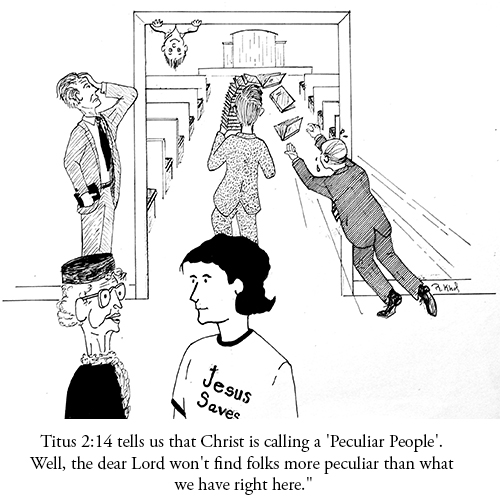He has sent redemption to His people; He has commanded
His covenant forever: Holy and awesome is His name.
Psalm 111:9
Sometimes there seems to be a total disconnect between how people use a word and what it actually means. I’ve heard the term “awesome” used to describe a pizza, a football game, a sunset, a double rainbow, and a party. If I were to write a definition based on current use, it would be, “A descriptive term that acknowledges an object or experience to be distinctively better than mediocre.”
Perhaps the closest usage of the word to its actual meaning came when my son went skydiving for the first time. As I looked up at a small aircraft against the cloudless, blue, Kansas sky, I saw a tiny speck eject itself. Falling to the earth at 180 miles per hour I could clearly hear him yell, “Awesome!” However, if this really was awesome, he wouldn’t have been able to speak at all.
The truly awesome is so terrifyingly intense that someone experiencing it is unable to speak because he is awestruck. The Apostle John’s vision of Christ on the Isle of Patmos was awesome. When he saw the Son of Man who had eyes like a flame of fire, a voice like many waters, and a sharp sword coming out of His mouth, John fell down like a dead man. There was just too much to process, so the mortal yielded to the immortal.
Moses climbed up a flaming mountain alone to encounter an Awesome God. The writer to the Hebrews described it this way: “And so terrifying was the sight that Moses said, ‘I am exceedingly afraid and trembling’” (Hebrews 12:21).
Soon and very soon, the Lamb will break the seals of God’s judgment on the planet that crucified Him. John foresees it this way: “Then the sky receded as a scroll when it is rolled up, and every mountain and island was moved out of its place. And the kings of the earth, the great men, the rich men, the commanders, the mighty men, every slave and every free man, hid themselves in the caves and in the rocks of the mountains” (Revelation 6:14-15). In that day when people experience Awesome, they’ll be fleeing from the wrath of the Lamb and not thinking about pizza.
October 9





